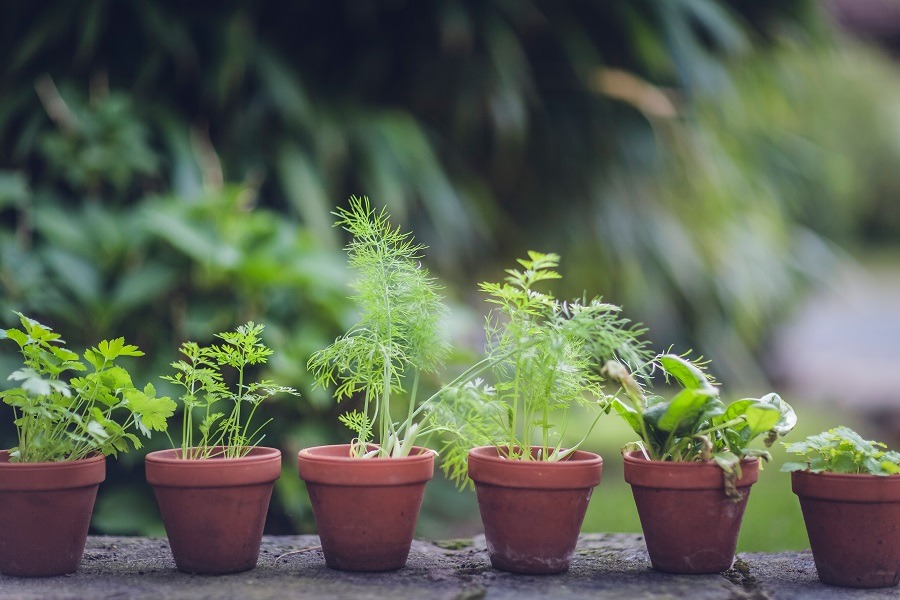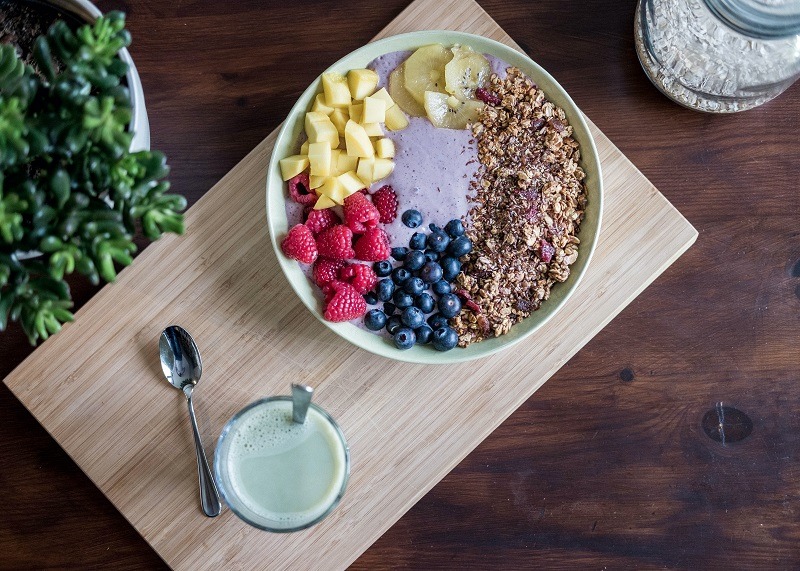
Written by Sally McGrath | Health that Heals
Dramatically shifting our everyday habits and behaviors during the last year has brought about multiple changes for many people around the globe. Along with these changes we have become increasingly aware of our consumption and the sourcing of resources to support our health. Many of our priorities have changed as well, with many people focusing anew on their health and well-being, including what they eat. As a result, food and health culture have changed.
In the year ahead, we are likely to see these changes come to fruition and build momentum, industry experts are proposing massive change, so you may wonder what lies ahead for 2021.
Preventative health has never been of more importance and focus as we move forward and the lessons from 2020 are remain top of mind. Our homes have become the multi-purpose base; an area of not only sanctuary, a place for exercise, work, school, cooking, connecting and retreating. Consequently, here are six food, nutrition and exercise trends to observe during the year ahead. Prevention, rather than cure has and will continue to be the best and most efficient way for sustained optimum health. In the words of Dutch philosopher Desiderius Erasmus, “Prevention is better than cure”.
1. Unleash the Inner Chef and Cook
During the past year, even the least interested have become cooks in their own home. The creative cook has emerged and is not turning back, with more flexibility and less time spent commuting, time is likely to be channeled into making time to prepare nutritious meals, returning to the basics that our grandparents lived by, have become a reference point albeit with a focus on the link between what we eat and how it makes us feel.
Watch out for the foods that contain immune boosting, nutrient rich and anti-inflammatory benefits, such as pre and pro-biotic foods, mushrooms and legumes. There will be more and more focus on plant based foods as we become more and more aware of food consumption, its effects on the environment and sustainability of production. Growing our own food, albeit a few vegetables or herbs will become increasingly popular, along with composting the waste if it is not used for leftover meals.

2. Supporting Our Immunity
The future of our food will encourage us to eat for immunity, foods won’t just be valued for fuel and staving off hunger pains. The future of food and drink will take cues from the supplement market, calling attention to the roles that specific ingredients play in improving overall health and well-being. No longer is a supplement the quick-fix solution to a nutritionally lacking eating pattern. The pandemic has highlighted the importance of supporting a healthy immune system, with wholistic nutrition, no longer will a magic potion or pill be tolerated and finally, the message is sinking in that there is no quick fix. Quite simply, if you do not make time for wellness, you will be forced to make time for illness.
This growing interest in immune health will continue to be a top focus of the health and wellness industry in 2021. Rather than focusing on treating conditions, many consumers will strive to prevent them via a strengthened immune system. The food industry will be forced to learn from the supplement world and the demand for products to be created, that include nutrients (eg: Vitamins C and D, Selenium and Zinc), to support immune function will be a focus.
Alternative remedies are anticipated to increase in sales, these are likely to be elderberry, echinacea, turmeric, ginger and spices with (anecdotal) immune boosting impacts. Care needs to be taken, as some alternative remedies can have contra-indications with some medications. Always consult a medical practitioner before adding a new supplement to your preventative health ritual. The statement by Hippocrates, that has and is controversial, yet still has relevance more than ever in our world today. By eating foods that nourish the body both physically and mentally. In this increasingly complex and changing world, food alone is no longer enough.
3. Mental Health and Burnout Prevention
Never before have we been so aware of our Mental health, it has also become a priority for many people and created an increasing awareness to watch out for our family, friends and colleagues.
Supporting our own mental health starts at home, focusing on what really matters to us and the experience of isolation has re-ignited the importance of face to face connection with family, friends and the outside world. Many are continuing to support mental health with non-clinical management. While food alone cannot treat or cure depression, anxiety, acute stress or burnout, eating a mostly minimally processed diet rich in a variety of nutrients can help support your mental health. A simple “note to self”, if it (the food) is grown from a plant; eat and enjoy, if it (the food) is made in a plant, re-think before you consume. It is important to note that ongoing mental health challenges are best to be discussed with a medical professional for correct diagnosis and management.
Food and nutrition can also support the maintenance of mental health, incorporating antioxidants, vitamins (e.g., B vitamins), minerals (e.g., zinc, magnesium), fibre, healthy fats (e.g., omega-3s), and probiotics, have been linked to better mental well-being, though higher-quality studies are needed.
In 2021, we’ll notice more food and beverage companies developing and marketing products that contain these (above) ingredients with an emphasis on reducing stress and improving sleep, which is also linked to better mental health.
In particular, functional beverages that contain stress-reducing compounds, such as adaptogens, substances that can help your body adapt to stress and cannabidiol (CBD), the non-psychoactive part of the cannabis plant, will increase in popularity. Products like Reishi mushroom, containing adaptogens may produce calmness to reduce the stress that can lead to burnout and improve sleep.
Burnout has become a frequently referenced term to the levels of sustained stress that many have been experiencing over the past year. Whilst burnout has been around pre-Covid times, similar to mental health, awareness has increased and prevention of this condition will also be a focus for the way forward.
4. Sustainable Food with a Human Story
We are now wanting to continue the localised and sustainable practices of what we have learnt to seek out quality food, with an increasing number of consumers are looking to support local companies with a story and purpose rather than large corporations. Produce markets, community gardens that are in keeping with sustainable methodology are in demand and will continue to be during 2021.
The focus on supporting the “local” businesses has been a win for small business. People have become more aware of their community and what is available. In moving forward there will be increased demand for locally sourced products, offering greater freshness, contributing to the local economy with a focus on creating less environmental impact.
Locally sourced produce often comes with a story, another way to connect with the local community as no longer are many interested in the packaging, rather the impact of purchasing, what the inspiration is behind the food production and the people that are the creators.

5. No More Dieting, rather Flexible Food Rituals
As our awareness for sustainable food production has increased so has the need for less of the “quick fix” diet. Products promising massive results or being excessively restrictive, making carbohydrates the enemy will become more health focused.
As we adapt to bringing in more plant-based foods, our focus on food will become more flexitarian, as consumers choose more animal products that have less impact on the environment and combine these choices with plant-based alternatives and fresh produce for meal planning and preparation.
The extremes that we have seen in the past with veganism, vegetarian, keto, paleo have been identified as restrictive and as soon as we are deprived of a certain food, it becomes even more desirable. We are seeking more nutrition-focused foods, happiness and a move away from the perfectionist influences from media dictations over many years. With multiple social media profiles, offering and promoting, healthy, balanced nutrition and lifestyles a move away from the diet and skinny culture is gaining momentum.
Our habits and patterns greatly impact and influence the children in our lives, the preparation of more food at home during 2020, has created a collaborative approach and given children the opportunity to be more involved in cooking and food preparation, a life skill for any young and growing mind, time together with family members and the much-needed connection, humans need.
6. We Move Differently Now
As part of our awareness of overall health and wellbeing, the way we move has varied especially with the confinement we have experienced in the recent year. The home base now being a primary place for movement and exercise. Video Conferencing has brought our exercise and fitness classes and personal training sessions into our lounge rooms, balconies and gardens and we like it! The combination of “on-line” exercising and visiting the physical gym and fitness studios are creating greater flexibility for us, giving us less excuses to make to avoid exercise. Even our fur friends move more as we have been home more and now everyone sees the benefits to walking the dog or pounding the pavements to clear their heads and get some exercise. This multi-combination will continue into the next year, offering us flexibility and offering variety to the way we support our physical health.
The challenges of 2020 have paved a way forward in 2021 for more of a middle of the road and flexible approach to our habits. What is most valuable is that we have all learned to appreciate the opportunities we have access to, especially when they had been taken away.
A Demand for Transparency
Overall our tolerance for misleading and false information in the year ahead will demand transparency. Whilst we will want to see convenient options for food preparation and consumption the quality and nutritional value of the foods will be more important than ever. Companies therefore will be required to be more transparent about ingredients, sourcing and practices.
What’s more, as consumers we will look to support companies with philanthropic practices, such as giving part of their proceeds to support the homeless, provide to charitable organisations, supporting health education, providing support for employees, and consideration of the environment.
We’ll all see an overall shift in 2021 throughout the health and wellness industries. Gone are the days of extreme diets, unnecessary ingredients, and false promises. As we move forward into the new year, we’ll see more people looking to eat food that has a purpose, story, and serves society as well as their health. With so many options available there will also be trends in seeking support for selections and remaining accountable to lifestyle changes and improvements. Health Coaching, Life Coaching, Business Coaching support professionals are more in demand and we seek to be heard, not judged and have space for sharing our fears, desires and progress towards living in harmony.
From a health and wellness approach, it is refreshing to see movements and changes develop to a less extreme approach to holistic health and more a lifestyle, offering sustainability for humans and the environment alike. A Prevention Strategy is the way to create, maintain and live with joy, gratitude and simplicity to navigate the year ahead.
6 Sustainable Steps for Wellness 6 Sustainable Steps for Wellness 6 Sustainable Steps for Wellness 6 Sustainable Steps for Wellness 6 Sustainable Steps for Wellness 6 Sustainable Steps for Wellness



